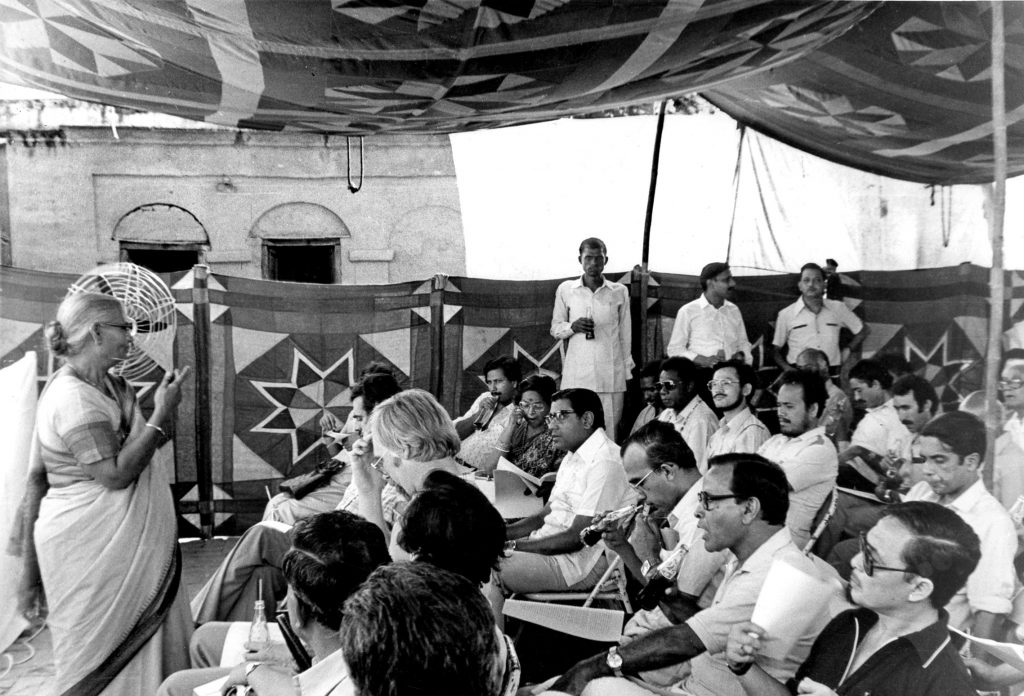Lifelong learning has a key role to play not only in achieving SDG 4 on education but also in creating a climate in which progressive change is possible, writes Paul Stanistreet

Last week, the Comparative International Education Society (CIES) convened in San Francisco for its annual conference, which this year focused on ‘Education for Sustainability’.
Jeffrey Sachs, the economist, UN adviser and sustainability advocate, gave the keynote lecture. He demanded urgent action to address the challenges of sustainability and specifically to deliver on the 2030 Agenda for Sustainable Development targets for education. Without a major change of pace or direction, he warned, the targets for Sustainable Development Goal (SDG) 4 would not be met.
Sachs is right to urge educators to ‘raise their voices’ and’ fight harder for resources’. However, the contribution of education to the sustainable development agenda will not be realized simply by raising more taxes from the very wealthy or by demanding or securing more funding for schools, important though this is. We need to think too about the role of education in shifting the cultural and intellectual climate to a place where political will can be moved and meaningful change in the face of powerful, entrenched interests is possible.
It is important, therefore, that we recognize the wider role of education, not only in improving literacy and school outcomes, but also in fostering values of sustainability, citizenship and democracy, and in preparing people to take an active role in demanding positive change in their societies. It is here, after all, that pressure on government to deliver on the promise of the SDGs is likely to be most effective.
Around the world, democracy is under threat. Too many people live desperate lives without hope of change. The problems they face seem too complex or too enormous to address. Quite understandably, they become angry or apathetic. People have, in very many cases, lost faith in politics as a means of effecting positive change in their societies. The growth in populism around the world is one symptom of this.
Education has a crucial role to play in the revival of democracy. ‘Business as usual’ is no longer an option. Living peacefully and sustainably requires that we think differently about education, think harder about our values, and develop creative solutions and more future-oriented approaches.
Too often, education erects barriers and resists change. It can result in arrogance and a sense of entitlement to power and it can accentuate people’s feelings of inferiority and powerlessness. To be truly effective in addressing the challenges of sustainability, it needs to empower those with the least power to make change happen, and this means focusing not only on children and young people, but on adults too.
Lifelong learning has a critical role to play in this, as the Education 2030 Framework for Action for the implementation of SDG 4 acknowledges, but its role has thus far been largely overlooked. We need to revisit and revive the notion of education for democratic citizenship that so motivated the forerunners of the adult education movement, and create safe, diverse spaces in which people can come together to learn about and discuss the key issues that concern them.
Lifelong learning for active citizenship brings people with different political perspectives together, promotes thoughtful and mindful responses to the challenges we face, and makes people more tolerant and open-minded. It fosters skills of communication, learning, problem-solving and advocacy. It is empowering and can generate solutions that can be translated into concrete actions. In short, it represents an ideal space in which creative, long-term solutions to the problems faced by our communities and countries can be found.
We need to reflect on what kind of education we want. Do we want education that simply gives us the skills we need to be economically useful adults or do we want education that creates resilient, creative, thoughtful and empowered citizens, able to engage in politics and continuous learning to create a better world? As the Welsh educator and cultural theorist Raymond Williams wrote, ‘To be truly radical is to make hope possible, rather than despair convincing.’
Paul Stanistreet is Head of Knowledge Management and Communications at UIL
